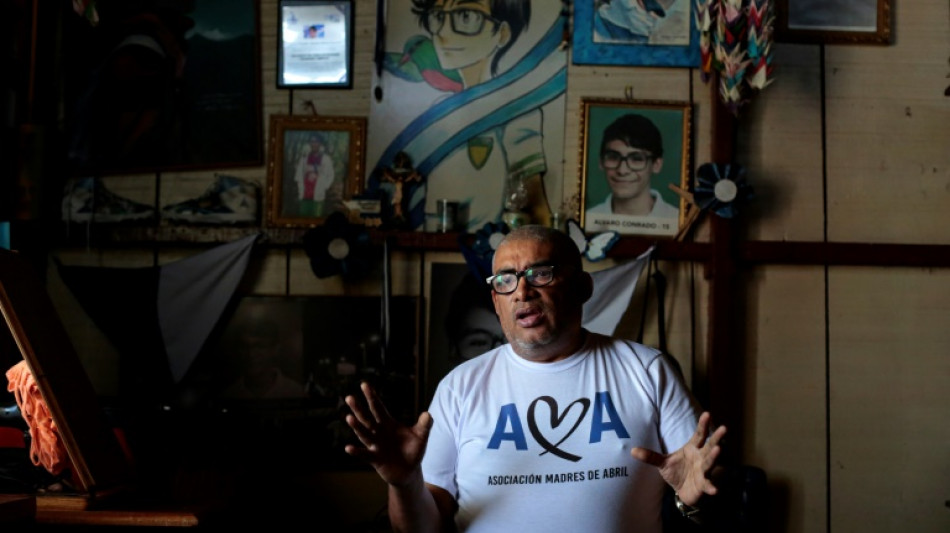
-
 787 Dreamliner is Boeing's flagship long-distance plane
787 Dreamliner is Boeing's flagship long-distance plane
-
All Black Fainga'anuku eyeing Top 14 semis before New Zealand return

-
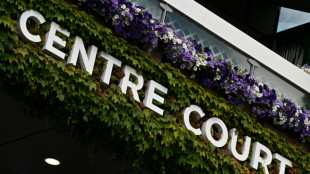 Wimbledon prize pot increases as players push for greater profit share
Wimbledon prize pot increases as players push for greater profit share
-
McIlroy pars, DeChambeau bogeys and Aberg leads as US Open begins

-
 McKeown untouchable at Australian trials as Chalmers, Pallister shine
McKeown untouchable at Australian trials as Chalmers, Pallister shine
-
India and its vast booming aviation sector
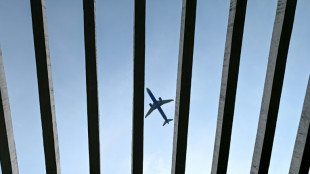
-
 Bavuma, Bedingham lead South Africa rally in WTC final against Australia
Bavuma, Bedingham lead South Africa rally in WTC final against Australia
-
Stocks, dollar retreat on new Trump trade threat
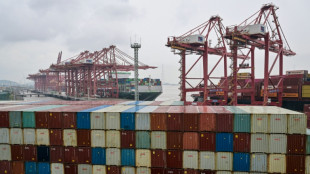
-
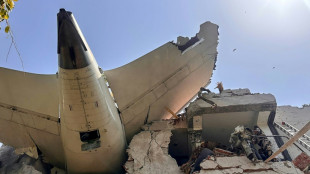 Flames and smoke in aftermath of crashed India passenger jet
Flames and smoke in aftermath of crashed India passenger jet
-
Ryanair says will fine 'disruptive passengers' 500 euros

-
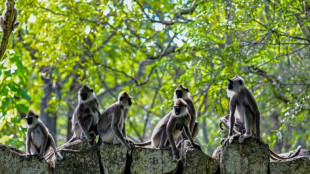 Sri Lanka counts seven million crop-busting monkeys
Sri Lanka counts seven million crop-busting monkeys
-
Sundowns must adapt to less possession, warns coach Cardoso
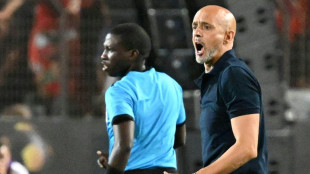
-
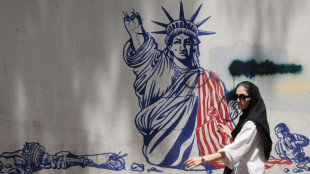 Iran defies US on enrichment ahead of nuclear talks
Iran defies US on enrichment ahead of nuclear talks
-
March quake to drive 2.5% drop in Myanmar GDP, says World Bank
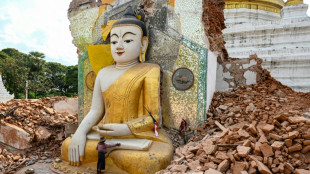
-
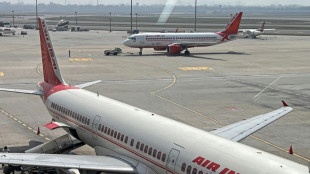 London-bound plane crashes in India with 242 on board
London-bound plane crashes in India with 242 on board
-
Disasters loom over South Asia with forecast of a hotter, wetter monsoon
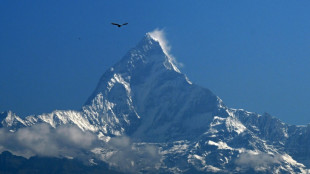
-
 Chinese woman detained over BTS Jungkook attempted break-in
Chinese woman detained over BTS Jungkook attempted break-in
-
Oman to host US-Iran nuclear talks on Sunday
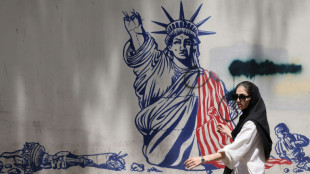
-
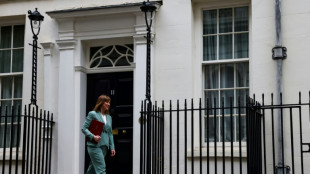 UK economy shrinks in April as US tariffs kick in
UK economy shrinks in April as US tariffs kick in
-
Poland coach quits after Lewandowski boycott and World Cup qualifier loss

-
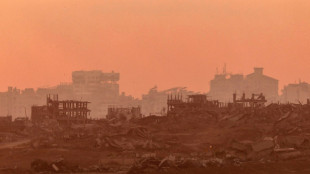 Israel says Hamas 'weaponising suffering in Gaza' as aid workers killed
Israel says Hamas 'weaponising suffering in Gaza' as aid workers killed
-
Jones tells Japan to run wounded Wales 'off their feet' in the heat
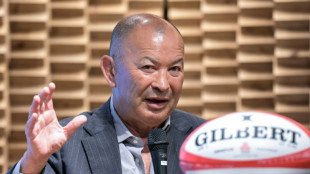
-
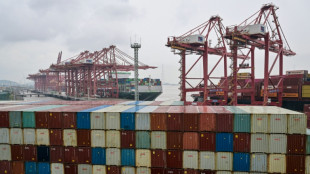 Shares stumble after Trump's latest trade threat
Shares stumble after Trump's latest trade threat
-
Japan, China trade barbs over fighter jet manoeuvres

-
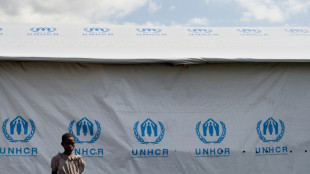 122 million forcibly displaced worldwide 'untenably high': UN
122 million forcibly displaced worldwide 'untenably high': UN
-
Niger-Benin border standoff deepens as trade collapse bites
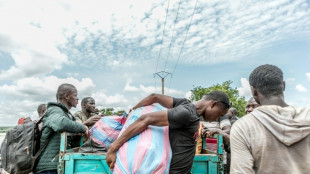
-
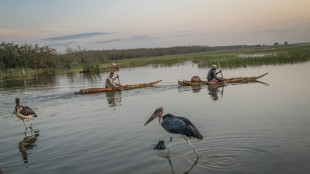 Ethiopia's vast lake being pumped dry
Ethiopia's vast lake being pumped dry
-
EU crypto regulation hampered by national flaws

-
 Nairobi startup's bid to be 'operating system for global South'
Nairobi startup's bid to be 'operating system for global South'
-
Netanyahu survives opposition bid to dissolve parliament
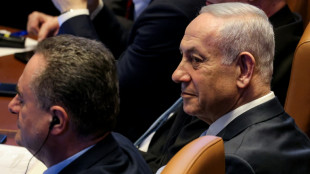
-
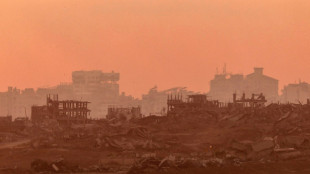 US-backed Gaza Humanitarian Foundation says 5 members killed in Hamas attack
US-backed Gaza Humanitarian Foundation says 5 members killed in Hamas attack
-
Resilient Mathurin stars in Pacers win

-
 Scheffler chases back-to-back majors at US Open
Scheffler chases back-to-back majors at US Open
-
Australian mushroom murder suspect denies intent to kill
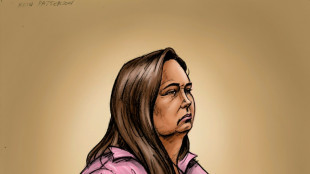
-
 Pacers bounce back to down Thunder to take 2-1 NBA Finals lead
Pacers bounce back to down Thunder to take 2-1 NBA Finals lead
-
Trump unveils website for $5 million US residency visa

-
 Australia 'confident' in US nuclear sub deal despite review
Australia 'confident' in US nuclear sub deal despite review
-
Ferrari target 'magnificent' third straight Le Mans 24 Hour triumph

-
 Verstappen seeks record fourth Canada win and trouble-free weekend
Verstappen seeks record fourth Canada win and trouble-free weekend
-
Five of the stars missing at the Club World Cup

-
 Alonso's new-look Real Madrid aiming for Club World Cup glory
Alonso's new-look Real Madrid aiming for Club World Cup glory
-
Pacers bounce back to down Thunder for 2-1 NBA Finals lead

-
 PSG's Lee pleads with S. Korea boo boys to back team at World Cup
PSG's Lee pleads with S. Korea boo boys to back team at World Cup
-
India's rugby sevens venture tries to convert Olympic dreams to reality
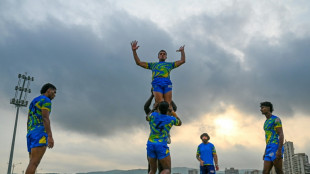
-
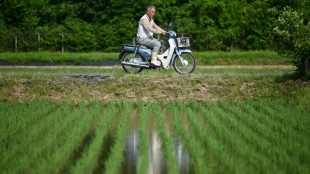 Rice prices Japan's hot political issue, on and off the farm
Rice prices Japan's hot political issue, on and off the farm
-
Asian shares stumble after Trump's latest trade threat
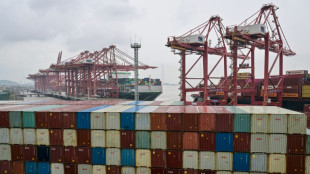
-
 From fishing family to Big Tech: French CEO takes on Silicon Valley
From fishing family to Big Tech: French CEO takes on Silicon Valley
-
Value oceans, don't plunder them, French Polynesia leader tells AFP
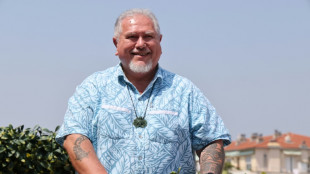
-
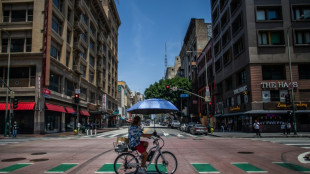 'Our city is not on fire': LA residents reject Trump rhetoric
'Our city is not on fire': LA residents reject Trump rhetoric
-
In a Ukrainian strip club, the war is laid bare


Families demand justice four years on from Nicaragua protest repression
Alvaro Conrado's last words were: "It hurts to breathe."
He was 15 when he was shot in the stomach while bringing water to students protesting against the government of Nicaragua President Daniel Ortega four years ago.
He was likely shot by a sniper. His family is still waiting for justice.
"Justice and truth. That's what we want, we want them to tell us what happened. Four years after his death no one has been arrested," the teenager's father, also called Alvaro Conrado, told AFP from the family home in Managua.
Protests had broken out two days before the younger Alvaro's death, on April 18, 2018 -- initially against a social security reform before exploding into a massive anti-government movement.
The country was brought to a near standstill for five months, during which the government's response left 355 people dead and more than 100,000 exiled, according to the Inter-American Commission for Human Rights.
Nicaragua has been gripped by political crisis since.
The government declared the protests an attempted coup d'etat, and has since banned numerous opposition political parties, NGOs, independent media and even private universities.
Every level of government is in the iron grip of the ruling Sandinista National Liberation Front (FSLN) party.
Ex-guerrilla Ortega, 76, was unsurprisingly re-elected in November to his fourth consecutive mandate.
Before the vote, several potential opponents were jailed, accused of trying to overthrow the government with the help of Washington.
Several days before the anniversary of the start of the protests, Ortega's wife and vice president, Rosario Murillo, branded the movement a "hellish malevolent evil explosion" and said it "will not be excused nor forgotten."
The deeply religious 70-year-old said the events would be remembered as "victory over evil."
- 'Impossible to forget' -
"On April 20 at midday, when I received a call saying he was hurt, I couldn't believe it," said Alvaro Conrado, a 53-year-old computer engineer.
"It's impossible to forget that moment."
He says he has since lost his job with the state, and is regularly the victim of harassment by authorities and government supporters.
His wife is afraid to come home from Spain, having left the country to denounce her son's murder with the Mothers of April Association (AMA).
Francisca Machado, 48, from the northern town of Esteli, also lost her son Franco Valdivia, a 23-year-old law student, during the protests.
"He was the younger of my two sons... I made so many sacrifices so he could get ahead," said Machado.
"In an instant they took his life and left me with this great void and irreparable pain.
"I feel great pain and impotence on these anniversaries. For me, there is no clean slate. I want and I demand justice, whatever it takes."
In the south of the country on Ometepe island, farmer Justo Rodriguez was detained in 2020 for allegedly taking part in a second anniversary commemoration of the protests, which he denied.
He spent eight months in prison, where he fell ill.
Now 69, he remains bedridden and can barely speak.
"After they took me there (to prison) they brought me back in bad health," he said.
The Nicaraguan Center for Human Rights (CENIDH), one of the few independent organizations that manages to continue operating in the country despite being banned, accuses the government of trying to impede commemorations.
According to CENIDH president Vilma Nunez, 177 opposition figures remain behind bars, including seven presidential aspirants for last November's election who have been sentenced to up to 13 years in prison.
"Another wave of persecution has been unleashed with raids, threats and arrests," said Nunez.
She said at least six musicians and music producers critical of the government have been arrested recently.
"Another form of repression is stripping people of their passport so that they cannot travel and if they are outside the country they cannot renew this document, which makes them illegal," said Nunez.
P.Silva--AMWN